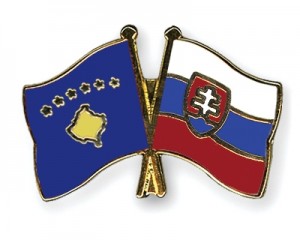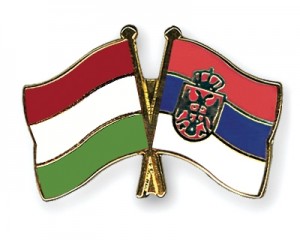 The Independent Kosovo is a fact. Although the newest republic in Europe was ‘born’ on February 17th 2008 within the united Old continent there are still countries which have not recognized the government in Prishtina yet. The EU states such as Cyprus, Greece, Romania, Slovakia and Spain have reiterated they are not going to recognise Kosovo’s independence. Owning to this, they tend to be exposed to persistent criticism from side of the other EU members as well as from other non-EU supporters of Kosovo.
The Independent Kosovo is a fact. Although the newest republic in Europe was ‘born’ on February 17th 2008 within the united Old continent there are still countries which have not recognized the government in Prishtina yet. The EU states such as Cyprus, Greece, Romania, Slovakia and Spain have reiterated they are not going to recognise Kosovo’s independence. Owning to this, they tend to be exposed to persistent criticism from side of the other EU members as well as from other non-EU supporters of Kosovo.
But is it really correct to criticise those states? Cannot it be that the listed countries might be right in their refusal? Is there any possibility that a ´bad guy´ of today can become the good one tomorrow? What if it is so that there is no truth but only stronger arguments which make a position right? What if one of the countries has the same fate as Kosovo? What if their rejection is only the next stadium of the development Kosovo is to go through in the future? In order to answer these questions let us take a look on the case of Slovakia in relationship whit Kosovo.
Upper Hungary (Felső-Magyarország) or Upper Country (Felvidék) is a Hungarian designation for the present-day Slovakia, still in active use in the Hungarian literature and Hungarian language. The Slavic nation used to be integral part of the multicultural non-slavic Kingdom of Hungary (1538-1867) which later was transformed into dual monarchy called also Austro-Hungarian Empire (1867-1918). Since then every bigger Slovak city has had its own Hungarian equivalent used by Hungarian speakers. On the brink of the Empire´s demise, Slovakia as well as the neighbouring regions of Bohemia, Moravia, Silesia and Carpathian Ruthenia were not strong enough to stand up for their rights independently. Following the motto “Unity makes strength”, in 1918 the Czechoslovakia emerged. Although the Slovak nation had much more in common with the Czechs than with the Hungarians, Slovakia continued calling for a greater degree of its political autonomy within the new state. Short after the World War I, the ´Czechoslovakia´ was renamed into the ´Czecho-Slovakia´. The recognition of the independency however would be impossible without assistance of the great powers, mainly the United States of America. A prerequisite for what later became the Treaty of Versailles, a plan of stability for the post-war world devised by the U.S. president Woodrow Wilson, contained also a national self-determination right for all of the national groups in Europe. Owning to the Treaty of Trianon (1920) which followed the Versailles´ Treaty, Slovakia successfully gained its political and territorial independency from Budapest.
 Slovakia started to write a new chapter of its history as a non-homogenous nation. Similarly to Kosovo, besides the Slovaks there have been several other ethnic groups in the country. The biggest minority group has been formed by the Hungarians settled in the South Slovakia, i.e. on the borderline with Hungary. Although Slovakia was ´born´ almost 100 years ago, there have been perceptible aims from Budapest to revise the Treaty of Trianon and restore the Kingdom of Hungary.
Slovakia started to write a new chapter of its history as a non-homogenous nation. Similarly to Kosovo, besides the Slovaks there have been several other ethnic groups in the country. The biggest minority group has been formed by the Hungarians settled in the South Slovakia, i.e. on the borderline with Hungary. Although Slovakia was ´born´ almost 100 years ago, there have been perceptible aims from Budapest to revise the Treaty of Trianon and restore the Kingdom of Hungary.
In present days, the Hungarian minority itself has satisfactory conditions for living in Slovakia. They even have their political representatives on the regional level as well as on the national one. In the Slovak parliament there are two political parties at the sole disposal of the Hungarian minority. Notwithstanding the ´Hungarian card´ is played by political parties prior to each election, it is important to state that vast majority of the Hungarian population in Slovakia is rather indifferent toward nationalistic claims. This however does not apply for the political elite in Hungary and its policy for the Hungarian minority abroad (Slovakia, Romania, Vojvodina in Serbia).
On a regular basis, there are certain provocations that raise tensions between the neighbouring countries. For example, official statements claiming revision of the Treaty of Trianon or an open speech about possible restoration of the ´Great Hungary´ have become a daily routine. Occasional but more significant are particular projects and events initiated by members of the Hungarian minority or even by the Hungarian government itself. In 2008 both the Slovak prime minister and the Slovak president received a written project proposal putting forward the idea of the South Slovakia becoming an autonomous region with the capital Košice (the second largest city in Slovakia). The most recent example of the said is from the end of June 2012 when the Speaker of the National Council of the Slovak Republic Pavol Paška officially protested against an unannounced meeting of a Committee of the Hungarian Parliament held in the city of Komarno, South Slovakia. Organised without any official permission issued, the happening gathered also several noted Hungarian minority members from Slovakia. Among the supporters was, for example, a Slovak MP József Berényi from the Party of the Hungarian Coalition (SMK) who took on a task of a speaker. The Committee itself is a brainchild of the Fidesz parliamentary majority and its main agenda consist of national bonding (´nemzeti összetartozás´).
Thanks to the great powers´ support, Kosovo has succeeded to gain its independency in defiance of disapprobation from side of Belgrade. For now, the latter has no intention to change the position as the ´Kosmet´ region (Kosovo and Metohia) is still considered to be the integral part of ´Great Serbia´. In case of necessity, Prishtina can rely on its brotherhood with neighbouring Albania; mass usage of Albanian flag instead of the Kosovo´s official one speaks for itself. Due to this or despite, there is no federation between the two non-slavic countries using the Albanian language and the states do not seek federation of even unification. Time will show how Kosovo will protect and preserve itself. The first and the most current challenge of the independent state is the biggest minority located in the north. The Serbs from Kosovo like the Hungarians in Slovakia are abundantly being backed up by the neighbouring government consisting of the ethnic group that used to be primary in the previous state establishment.
It would be ill-considered to predict the future as well as to refuse to learn the lesson from history. In the past 20 years Slovakia has been confronting constant aims of Hungary to retrocede the past ´status quo´. This is one of the main reasons why the government in Bratislava has outlawed dual citizenship and declines to recognise the independency of Kosovo. Otherwise the recognition of the Kosovo´s declaration of independence from Serbia might possibly be considered as a pattern and pretext for initiating the process of the ´Great Hungary´ restoration. By affirmation of the Kosovo case, Slovakia would feel constrained to recognise potential autonomy or even separation of the south part of Slovakia and its affiliation to Hungary.
In conclusion, the fate of Slovakia may not become the future of Kosovo. However, “hi(s)story” is spiral like and mankind has been refusing learn its lesson from past. For better understanding of any situation, it is important to regard the international affairs in global picture, while considering all the national, regional and international particularities. This is the only way how a new state looking for international recognition and support can not only protect but also preserve itself for future generations.